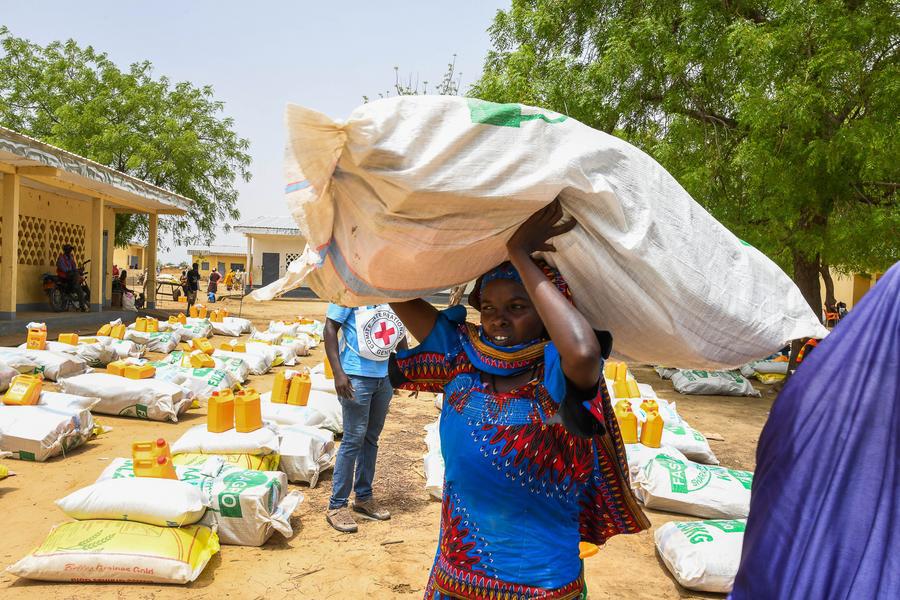A bright, sunny morning dawned in the Makali region of Cameroon's far north.
Ina Abaichou was one of the first to arrive at the Macari Integrated Health Centre with her son. The baby is 14 months old and looks thin due to malnutrition, a condition that can be accompanied by weight loss, loss of appetite and fatigue, including in the baby boy.
“I didn't eat properly during my pregnancy. My child got sick and had diarrhea. We took him to the local hospital where he was admitted,” the 23-year-old mother said.
Malnourished children and parents are common in the malnutrition ward at Makari General Medical Centre, which provides medical care to more than 32,000 people in the war-torn region.
Years of violence by the terrorist group Boko Haram have pushed thousands of families into extreme poverty.
“The situation is alarming. Despite the efforts of the Cameroonian government and its partners, we are receiving more and more malnourished children every week,” said Abanchime Kachalla, director of the Makali Integrated Health Centre.
“We receive a lot of babies under five and about 35 malnourished patients every month,” said Josephine Ginaa, who oversees the malnutrition ward.
At its peak, that number could spike to as many as 75 cases a month, she said.
Kachala said the International Committee of the Red Cross (ICRC) was providing maximum assistance to malnourished children, working with local health centres to improve children's diets and ensuring monitoring of the situation.
The ICRC runs a feeding programme that includes the provision of Plumpy'Nut, a ready-to-eat therapeutic food.
“We give each child 15 packets (of Plumpy'Nut) every week, which is a huge help. When we run out of nuts we sometimes make nutritious porridge for the children,” said Lindo Salta, 26, a nurse at the health centre. “Some children are recovering.”
“We are with the children every day and we want them to stay healthy. The ICRC has already taken great steps and we want this to continue,” Ginaa added.
Abaichou was one of those who received a sachet of Plumpy'Nut for her child.
“They gave us nuts and he eats one every day. When they're gone we go back and get more. His situation is changing a little bit. I'm really happy,” Abaichou said.
Kachalla said the school feeding programme has had a “remarkable” impact on children's health and development, saving countless lives every day.
Apart from the therapeutic feeding programme, the ICRC has ensured that health centres are operational.
Initially there was only one staff member, but with the ICRC's help there are now 14 staff members, Kachalla said. “This is a great blessing because the medical centre now has almost all the staff we need.”



